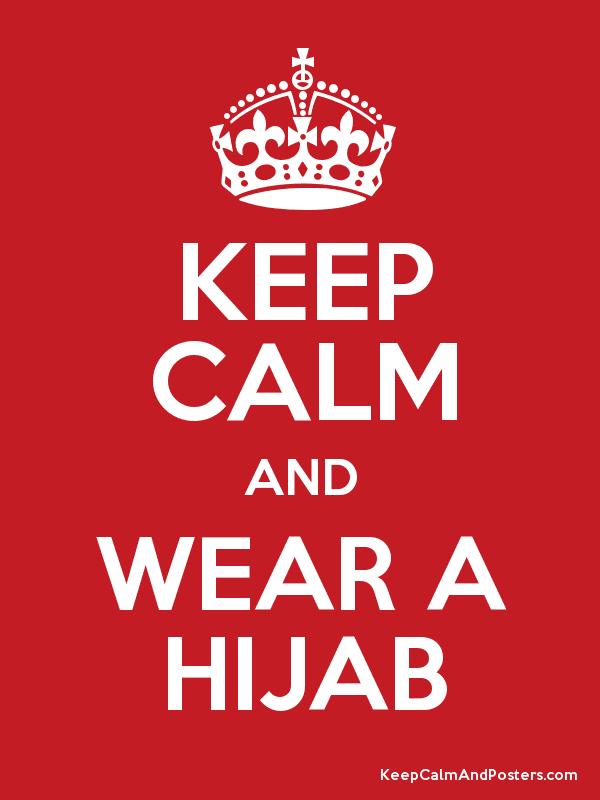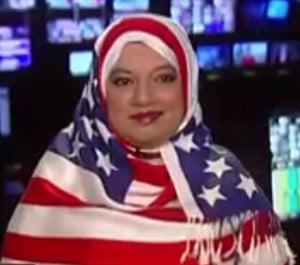I am not a hijabi. My choice is not religious or political, but rather cultural. Upon my conversion to Islam, it didn’t take too long before I was asked when I would wear hijab, and I was taught how to “properly” wear it. I must admit that I contemplated it for a couple of years. In my community in Northern Alberta, hijab-wearing converts had access to a whole different level of community relationships.

However, the more time passed, the more I realized that hijab was not for me. I had no cultural reference for veiling, which made the hijab feel like a “foreign” garment. Yet, later on, a more compelling reason appeared. I personally felt that by wearing hijab I was appropriating an experience that wasn’t mine. I am not suggesting that hijab-wearing converts are necessarily “appropriating” anything, but as someone who did not see it as a religious obligation, wearing hijab meant a completely different thing. As a convert who had a whole other life, I would be appropriating a garment that meant so much for many other women, whose experience of the hijab included Islamophobia and discrimination in Canada and other countries. In my view, their experience of such phenomena shouldn’t be washed out by converts like me who do not carry the same “baggage.”
However, my choices continue to be questioned and my “Muslimness” is often overlooked (something I wrote about on my personal blog):
“I noticed a few of my convert friends were struggling. I am not sure if it is a new trend, or if it has always been there, but these days a lot of born-Muslims are concerned about how Muslim converts are. A few days ago, a fellow convert married to a South Asian Muslim expressed her discomfort at the fact that classmates question her children not only about their “weird” looks (the mother is Caucasian) but also about their “Muslimness” since their mother is a convert. Another close friend has given up all together. The major problem for her was the hijab thing, people questioned her all the time about not wearing the hijab full-time and eventually it became such an issue that some fellow Muslims (even coverts) decided to stop inviting her to social events for not complying with the standard. A fellow working convert, married to a Lebanese Muslim, has her “Muslimness” continuously questioned because she “allows” her daughter to professional perform Highlands dance.“
My favorite part of this process, sarcastically speaking, is that there are people out there who still capitalize on the issue of the hijab and what it means to be a “proper” Muslim woman. This happens in waves, some months I get to see more images, videos and articles than others.

A few days ago a Facebook acquaintance who is convinced that I am “losing” my path sent me a link to the Deen Show, along with an image that was in just plain bad taste. As you may imagine, the Deen Show wasn’t for me. Their About Us Page states:
“We’re American Muslims (Any Peaceful person who submits to the Creator alone) here in the United States and it is our pleasure and privilege to help educate and share the true message of Pure Islam without cultural, traditional or nationalistic prejudices and corruption.”
The Deen Show is available over satellite and cable in different countries, and they have numerous videos and posts in their site, including “Secrets of a Muslim Women: Unveil the Mystery” and the “Polygamy Survival Guide.” The site is led by a “Brother” by the name of Eddie, and there is a video about his life story, which can be purchased through their site.

After years of working for Muslimah Media Watch, there are very few things that surprise me about how some Muslims and non-Muslims try to guilt Muslim women into behaving in certain ways. Tasnim recently wrote about Jeremy Browne and the veil debate in Britain while Afia discussed “99 Hijab Stories” a few months ago. Some resort to law and policy-making, while others bring “success” stories to compel certain behaviours; some choose to shame women for wearing hijab wrong (Woodturtle also wrote about this a while ago), others suggest that we “Keep Calm and Wear Hijab,” and yet others resort to creating fear of hell, death, or unwanted attentions.
Images like this always make me cringe. I guess they are meant to, but I just don’t see how threatening or forcing Muslim women into wearing or not wearing hijab makes people feel “good” about themselves, or like they are actually helping…Let me tell you, they are not. A lot of Muslim women make very deliberate choices to wear or not to wear certain clothing. Whether we like these choices or not, guilting Muslim women into wearing hijab does not do anyone any favours .











